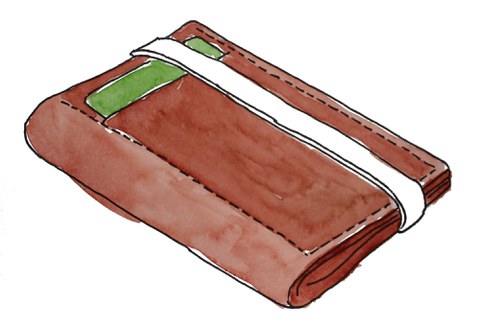Consumption - tips and hints
Table of contents
There are sustainable alternatives for many products. If you buy consciously and look for high-quality products with labels or make sure that they come from a secure source, you support socially and ecologically-sound production methods and save resources.
Clothing
"Fast fashion" is short-lived and stands for social and ecological exploitation. Therefore, it is better to shop "second hand" or to buy certified clothing.
These labels are particularly recommended for new purchases:
IVN Best
The strictest standard in the industry applies to the entire supply chain. All major chemicals are banned. Only organic natural fibers are permitted. Strict social standards do also apply.
GOTS (Global Organic Textile Standard)
One of the best known labels. It regulates the entire production chain according to ecological and social criteria. All major chemicals are banned.
Made in Green
The tightened environmental standards now take into account chemicals, environmental and quality management, and occupational safety.
Other recommendable labels are: Bluesign, Cradle to Cradle and the EU Ecolabel.
For a socially just production, you can also look for the labels of Fairtrade Cotton & Fairtrade Textile Production, as well as the Fair Wear Foundation.
Living and household
In your own household you can do a lot to make your lifestyle more sustainabel. Here are a few tips regarding how to avoid chemicals, save energy and reduce waste.
Washing and cleaning
- Avoid using heavy-duty detergents if possible as they contain bleaching agents and brighteners.
- Fabric softeners and special detergent additives often do not contribute to the washing effect, but they sometimes contain dangerous disinfectants, fragrances or softeners.
- Use organic products, because they usually do not contain questionable enzymes and microplastics. The surfactants are of vegetable or mineral origin.
- When dosing, pay attention to the water hardness. In Dresden, the water is rather soft, so less detergent is needed here.
- Today's detergents wash well even at low temperatures. If the washing temperature is reduced by one step (e.g. from 40°C to 30°C), this can reduce electricity consumption by about 1/3.
- When washing clothes made of synthetic fibers, it is best to use a special wash bag such as the "Guppyfriend". It prevents microplastics that detach from the clothing from entering the wastewater and later the rivers and oceans.
- The five most important cleaning remedies for home are vinegar - baking soda - citric acid and curd soap. DIY cleaners can be made from these - and your place stays clean without producing plastic waste. You even do not need to use aggressive chemicals.
Hygiene products and cosmetics
For less artificial ingredients and to avoid unnecessary waste, here are a few tips:
- Apps such as "Toxfox" or "Codecheck" help to identify problematic ingredients.
- Toothbrushes are available with interchangeable heads or wooden handles. Toothpaste is also available in tablet, powder or jar form.
- Solid shampoo comes in many varieties. This makes the plastic package superfluous.
Electricity provider
The normal electricity mix causes greenhouse gas emissions through the use of fossil fuels. Choosing green electricity can promote the energy transition and obtain electricity from 100% renewable energy sources. You should look out for the OK-Power label or specially recommended, sustainable providers.
Technical devices
The production and use of technical devices leads to high resource and energy consumption and is often associated with human rights violations and exploitation. Short product life-cycles and a lack of reparability additionally increase the amount of waste produced and the need for new devices. The following should therefore be taken into account:
- Select products that are as easy to repair as possible, e.g. where the battery can be replaced or the memory can be upgraded. In this way, the service life-time can be extended. A point system for the repairability of electronic products and helpful instructions on how to repair them yourself is provided by ifixit.
https://de.ifixit.com/ - Buy products that are as durable as possible and where little can break. In the case of headphones, for example, a product with a replaceable cable is the more environmentally friendly alternative to battery-powered, wireless noise-canceling headphones.
- Hand in old appliances at the recycling center of the municipality or bring them back to the shops. These have been legally obligated to accept old equipment since 2016.
- When buying "white goods", i.e. refrigerators, washing machines, dishwashers, pay attention to the EU energy label..
- There are companies that want to do things better and produce sustainable smartphones, for example. These include companies like "Fairphone" and "Shiftphone".



